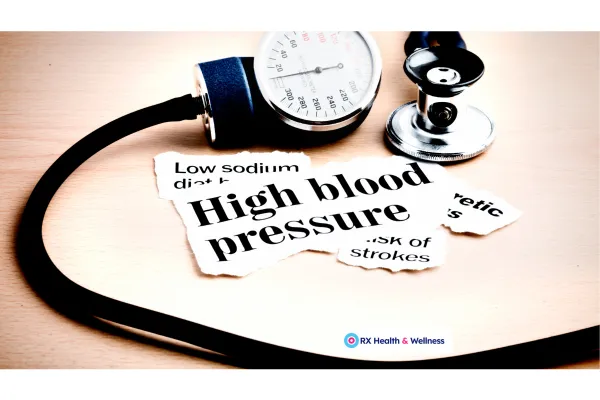
High Blood Pressure (Hypertension)
Understanding High Blood Pressure (Hypertension)
Brief Description:
This blog explains what high blood pressure (hypertension) is, why it matters, and how it affects your health. Learn the signs, risk factors, complications, and the steps you can take to prevent or manage it through lifestyle changes and medical support.
Its Impact on Your Health
High blood pressure, or hypertension, is a common but serious condition. Left untreated, it can lead to life-threatening problems like heart attacks, strokes, and kidney disease. In this guide, you’ll learn what high blood pressure is, how it affects the body, and what you can do to manage it.
What Is High Blood Pressure?
Blood pressure is the force of blood pushing against artery walls. It’s measured with two numbers:
Systolic pressure (top number): when the heart beats
Diastolic pressure (bottom number): when the heart rests
High blood pressure is defined as consistently having readings above 130/80 mmHg (American Heart Association, 2023).
Complications of High Blood Pressure
Chronic high blood pressure can damage important organs over time. Some of the most serious complications include:
Heart disease: It raises your risk for coronary artery disease, heart attacks, and heart failure.
Stroke: High blood pressure can lead to blocked or burst blood vessels in the brain.
Kidney damage: Over time, it can impair kidney function.
Vision problems: High pressure can damage the blood vessels in the eyes.
Cognitive decline: Long-term hypertension is linked to dementia and memory issues.
Reference: Centers for Disease Control and Prevention (CDC), 2022
Symptoms of High Blood Pressure
Hypertension is often called the "silent killer" because it usually has no symptoms until damage occurs. Some possible warning signs include:
Dizziness or lightheadedness
Headaches, especially in the morning
Fatigue
Flushed face
Vision problems or retinal changes seen during an eye exam
Nervousness or anxiety
However, most people don't know they have high blood pressure until it's measured.
Reference: American Heart Association, 2023
Risk Factors for High Blood Pressure
Some risk factors can be controlled, while others cannot. Key contributors include:
Overweight or obesity
Lack of physical activity
Smoking and tobacco use
High-sodium diet and low potassium intake
Heavy alcohol use
Chronic stress
Sleep apnea or poor sleep
Age: Risk increases with age (especially after 45 for men and 65 for women)
Race: African Americans are at higher risk
Family history of hypertension
Reference: Mayo Clinic, 2023; National Heart, Lung, and Blood Institute
How to Manage High Blood Pressure
Lifestyle changes are the first line of defense:
Eat a heart-healthy diet (like DASH)
Lower sodium and increase potassium
Maintain a healthy weight
Exercise regularly
Limit alcohol and avoid tobacco
Manage stress through sleep, relaxation, and self-care
Sometimes, medications are needed. These may include ACE inhibitors, beta blockers, calcium channel blockers, or diuretics.
Reference: American College of Cardiology, 2022
Conclusion
High blood pressure is a major health risk, but it’s manageable. Many people lower their risk through small, consistent changes to their diet, exercise, and lifestyle.
Check your blood pressure regularly, even if you feel fine. Talk to your doctor if your numbers are above 120/80 mmHg. Early treatment helps prevent long-term damage.
Your health is your most valuable asset—take steps now to protect it.
Sources:
American Heart Association. (2023). Understanding Blood Pressure Readings.
Centers for Disease Control and Prevention. (2022). High Blood Pressure Facts.
Mayo Clinic. (2023). High Blood Pressure (Hypertension).
National Heart, Lung, and Blood Institute. Managing Hypertension.
American College of Cardiology. (2022). Guidelines for Blood Pressure Management.
